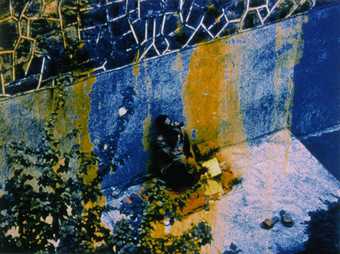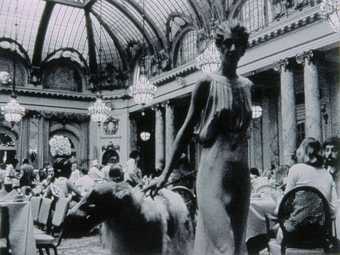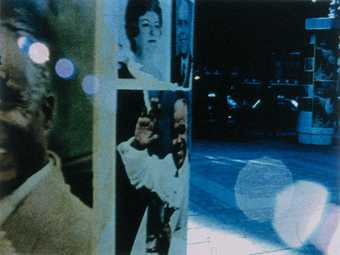Sonbert considered The Cup and the Lip as one of his best films ‘complete, succinct and time proof.’ Film critic David Sterritt wrote that ‘the film appears to be a regretful and perhaps sardonic essay on human frailty – and on the effort to stave off chaos by means of political and religious institutions, which carry their own dangers of social control and mental manipulation.’
Sonbert traveled extensively in his capacity as a professional music critic. Friendly Witness, marked his return, after 20 years of making films, to incorporating music tracks back into his work. In doing so, he selected specific recordings from his firsthand knowledge of a vast repertoire of classical, pop, and world music idioms. Critic Fred Camper has noted that the first section of Friendly Witness is ‘suggestive of loves gained and love lost’ – to the tunes of four rock and roll songs. Sonbert accompanied the closing imagery with a music underscore from Gluck’s operatic overture to Iphigénie en Aulide. The filmmaker observed: ‘Spectacle, public domain, objective (god’s eye) point of view is the aesthetic approach with the constant idea that all this activity is perhaps occurring simultaneously.’ Here as Sonbert weaves together an extraordinary palette of synchronous activity worldwide, he places himself firmly in the pantheon of the great montage theorists in film history.
Short Fuse is informed by his awareness of his own mortality following his HIV diagnosis. As film critic Steven Holden astutely noted, in Short Fuse, ‘an undercurrent of rage seeps through the cracks of its ebullient surface.’ The opening of the film explodes with a sea of turbulent emotions, underscored by the gripping sound track from Prokofiev’s First Piano Concerto. Shifting musical passages collide against images of leisure, war, and protest.
Programme
The Cup And The Lip
Warren Sonbert, USA 1986, 16 mm colour, 20 min
Friendly Witness
Warren Sonbert, USA 1989, 16 mm, 22 min
Short Fuse
Warren Sonbert, USA, 1992, 16 mm colour, 37 min



